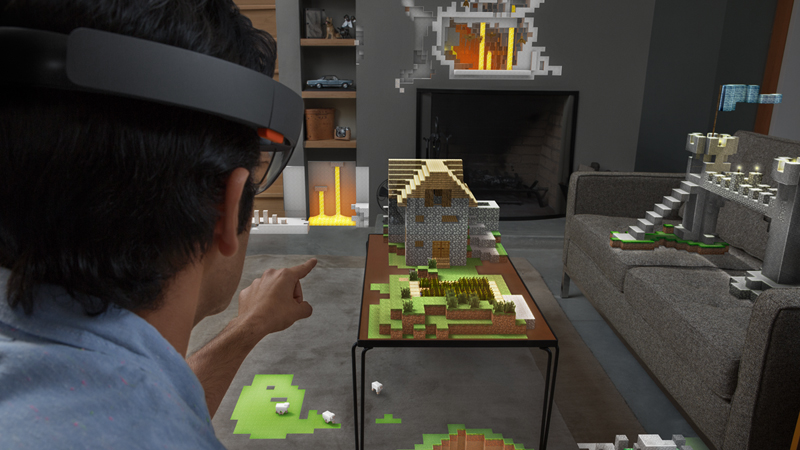Microsoft’s next HoloLens could be getting a more immersive field of view
According to a patent

It looks like Microsoft will be addressing one of the biggest complaints about its HoloLens augmented reality headset, with a new patent suggesting that the company will double the field of view (FOV) for the upcoming sequel.
A gadget's field of view relates to how much of your vision is taken up by the device’s screen. The wider the field of view, the more immersive the experience. The original HoloLens received a lot of criticism due to its narrow FOV, which means the information it displayed on its screen only took up a small part of the wearer’s vision.
However, a patent unearthed by WalkingCat, a Twitter user who often finds patents by Microsoft that hint at what the company is working on, suggests that Microsoft is looking into ways to increase the FOV of the next generation HoloLens.
MS patent "MEMS LASER SCANNER HAVING ENLARGED FOV" https://t.co/PZLatNZkNB also it mentions MicroVision PicoP pic.twitter.com/SJ1RjQvbn5June 25, 2018
Quite a view
The patent is for a “MEMS laser scanner having enlarged FOV”, and describes how a MEMS laser scanner can be used for a near-eye display that increases the FOV. It describes how “using light of different polarizations, the MEMS laser scanner is able to expand the FOV without increasing the range over which the mirror of the scanner oscillates”.
One of the names attached to the patent is Sihui He. As MSPowerUser points out, she is an optical engineer at Microsoft.
While the existence of this patent doesn’t necessarily mean that the next generation of HoloLens will definitely have a wider field of view, we’d be very surprised if Microsoft wasn’t working hard on improving the new HoloLen’s performance in that area.
We’ve recently heard rumors that Microsoft is working on a new HoloLens, codenamed Sydney, which could be released in 2019. These rumors also suggest that the next HoloLens will also be significantly cheaper than the original, which was another major criticism.
Get daily insight, inspiration and deals in your inbox
Sign up for breaking news, reviews, opinion, top tech deals, and more.
Will addressing these issues make the next HoloLens more appealing to customers? Time will tell.

Matt is TechRadar's Managing Editor for Core Tech, looking after computing and mobile technology. Having written for a number of publications such as PC Plus, PC Format, T3 and Linux Format, there's no aspect of technology that Matt isn't passionate about, especially computing and PC gaming. He’s personally reviewed and used most of the laptops in our best laptops guide - and since joining TechRadar in 2014, he's reviewed over 250 laptops and computing accessories personally.